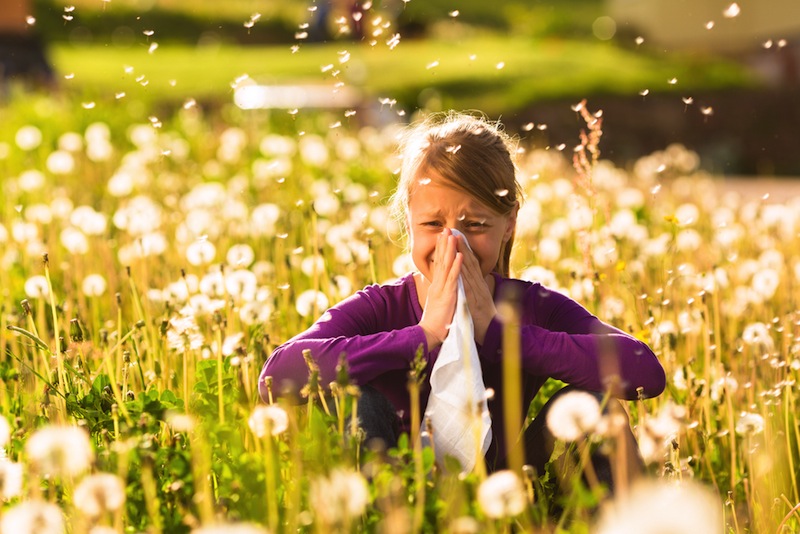Got Allergies? Avoid These 7 Mistakes

Get the world’s most fascinating discoveries delivered straight to your inbox.
You are now subscribed
Your newsletter sign-up was successful
Want to add more newsletters?

Delivered Daily
Daily Newsletter
Sign up for the latest discoveries, groundbreaking research and fascinating breakthroughs that impact you and the wider world direct to your inbox.

Once a week
Life's Little Mysteries
Feed your curiosity with an exclusive mystery every week, solved with science and delivered direct to your inbox before it's seen anywhere else.

Once a week
How It Works
Sign up to our free science & technology newsletter for your weekly fix of fascinating articles, quick quizzes, amazing images, and more

Delivered daily
Space.com Newsletter
Breaking space news, the latest updates on rocket launches, skywatching events and more!

Once a month
Watch This Space
Sign up to our monthly entertainment newsletter to keep up with all our coverage of the latest sci-fi and space movies, tv shows, games and books.

Once a week
Night Sky This Week
Discover this week's must-see night sky events, moon phases, and stunning astrophotos. Sign up for our skywatching newsletter and explore the universe with us!
Join the club
Get full access to premium articles, exclusive features and a growing list of member rewards.
Misery loves comfort, and with approximately 50 million Americans plagued by seasonal allergies, there are plenty of people feeling miserable and seeking comfort when pollen is in the air.
But in an attempt to relieve their sneezing, stuffy or runny noses, and itchy eyes, allergy sufferers might make a few mistakes.
The good news is that "seasonal allergies are totally treatable," said Dr. Clifford Bassett, medical director of Allergy and Asthma Care of New York. "The key is to have a plan in place."
Bassett described seven common mistakes that people with seasonal allergies make, so you can know to avoid them.
Mistake 1: Spending unwisely on over-the-counter medications
When people with allergies feel lousy, they may head to the drugstore and try a variety of products, such as antihistamines, nasal sprays and eye drops. This isn't necessarily a smart or cost-effective way to relieve their symptoms, though. It's better to see an allergist who can pinpoint exactly what your allergies are and create an allergy action plan, said Bassett, a fellow of the American College of Allergy, Asthma and Immunology. [9 Weirdest Allergies]
Mistake 2: Opening the windows
Get the world’s most fascinating discoveries delivered straight to your inbox.
"Wind is not a good friend to people with seasonal allergies," Bassett told Live Science.But when the weather gets warm, it's tempting to let fresh air and cool breezes into your home or car. "This is a big mistake for people with seasonal allergies because this allows pollens to visit," Bassett said. He recommends keeping windows shut, running the air conditioner to recirculate inside air and using HEPA (high-efficiency particulate air) filters to trap pollen.
Mistake 3: Not taking steps to keep pollen away
Your shoes, clothes, hair and glasses can all track pollen from outside into your home. Pets also bring pollen inside, so keep them clean. You should keep your own hair clean, too. "Wash hair at the end of the day to avoid transferring pollen to your pillowcase and sleeping on a pollen cloud," Bassett advised. It can also help to use saline nasal sprays, which are like a shower for your nose, to gently irrigate pollen from it, Bassett said. He also recommended that people avoid hanging laundry on an outdoor clothesline during allergy season.
Mistake 4: Neglecting your eyes
Many people don't realize that lots of pollen enters the body through the eyes, Bassett said. Protecting your eyes offers a great opportunity to reduce the pollen load your body experiences, he said. A brimmed hat and sunglasses can help block pollens from your face before they find their way into your nose and eyes. Eye rinses can wash away pollen, and antihistamine eye drops can relieve red, itchy eyes.
Mistake 5: Waiting too long to take allergy medications
Treat allergies at the onset of pollen season, rather than waiting until symptoms get more severe, Bassett said. He advises his patients to begin taking their medications one or two weeks before their allergy season typically begins. A proactive approach works better for many people; it may reduce the severity of symptoms, and the patient may end up needing less medication, Bassett explained.
Mistake 6: Overusing nasal sprays
People should generally limit their use of over-the-counter nasal decongestant spray to a maximum of five days in a row; otherwise the spray may irritate the lining of the nose and sinuses. With too much use, these sprays can make the nose severely congested, and some people just keep squirting in more spray to ease the stuffiness. "Rebound congestion creates symptoms worse than the original problem," Bassett said.
Mistake 7: Eating foods that aggravate allergies.
When some people with pollen allergies eat certain fresh fruits and vegetables, it may result in an itchy mouth or throat. This is known as oral allergy syndrome. The allergic cross-reaction occurs shortly after the offending food is eaten. It happens because the immune system recognizes a similarity between proteins in some pollens and those in fruits, vegetables, nuts and spices. For example, a person with a birch pollen allergy may develop oral allergy symptoms after eating an apple, carrot, peach, almond or hazelnut. Sometimes peeling, cooking or avoiding the food altogether during allergy season may prevent symptoms, Bassett said.
Follow Live Science @livescience, Facebook & Google+. Original article on Live Science.
Cari Nierenberg has been writing about health and wellness topics for online news outlets and print publications for more than two decades. Her work has been published by Live Science, The Washington Post, WebMD, Scientific American, among others. She has a Bachelor of Science degree in nutrition from Cornell University and a Master of Science degree in Nutrition and Communication from Boston University.
 Live Science Plus
Live Science Plus










